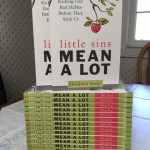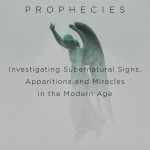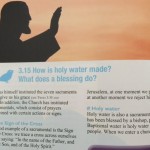Daniel Henninger has an important, must-read piece up at opinionjournal.com, concerning the fallout – or absence of same – from the discovery that James Frey’s multi-million selling “memoir” A Million Little Pieces is in fact, basically fiction. He finds the rationalizing and acceptance of “fake but accurate” to be a very troubling indicator of where we are headed as a society.
[…]the new, saleable world of false facts; it referred to the power of the book’s “overall reading experience.” The publishers argue, and some writers support them, that the consuming public’s changing tastes are forcing these category changes. Publishers are simply following the market.
In this view, fiction or even traditional nonfiction isn’t providing the hyper-real narrative many people now crave from an assembled memoir like A “Million Little Pieces”, no matter that it has been proven a fraud, or at least a fraud as formerly understood. But perhaps this suggests some people can’t handle the truth anymore, so they’d just as soon be lied to so long as the lies fit their belief system, such as belief in the power of personal “redemption.”
We live in a world of reality TV shows, of newspaper photographs and fashion photos routinely “improved” by the computer program Photoshop, of nightly news that pumps more emotion than fact into its version of public events such as Hurricane Katrina, hyper-real TV commercials manipulated with computers, the rise of “interpretive” news, fake singers, fake breasts, fake memoirs. Morris Dickstein of the Graduate Center of the City University of New York described this world as “always at the edge of falsehood” and so people come to tolerate it “as part of the overall media buzz of their lives.”
He’s right. But there is a political dimension to this, which many of what are no doubt politically liberal writers upset at James Frey and Doubleday ought to consider […]
We all know those widely shared categories were broken and blurred the past 38 years, leading to terrible political fights between social conservatives and liberal liberators over disintegrating standards of personal behavior. Welcome to what it has wrought…the culture really is in a million little pieces.
Truth no longer matters. Anything you want to hear, anything that shores up opinion has become your “personal truth.”
I received an email yesterday from an officer serving in Iraq, who was writing about a discussion he’d had with another officer on moral relativism – on whether it was possible that one man’s “truth” is as credible as another, given – say – the circumstances in which he was raised.
Moral relativism holds that there is no “truth.” There is only perspective. It has always struck me as an idea someone came up with while under the influence of cannabis – possibly while eating cheese doodles. Relativism is one of those things that sounds wise and tolerant, “if a man has been raised to believe it is good to kill Jews, then to him it is good, and that is legitimate, even if we do not agree.” In truth, the embrasure of such muddled thinking gives tacit permission for bigotry, persecution and chaos. And it is also, quite simply, a big lie.
Writes Henninger: Before all this, most people operated from a common personal standard, a broadly held superstructure of right and wrong, integrity and dishonesty, which they probably learned in Sunday school. You can see and hear it in hundreds of old Hollywood movies. “The Maltese Falcon,” written by Dashiell Hammett, a Communist, is full of this moral tension and resolving clarity.
As my li’l bro Thom has said, “There is truth, guided by natural law, and conscience, and some sense of morality, (even among nihilistic unbelievers) and then there are simply “different versions of an event” which some would like to call “truth.”
We seem to be slipping, very quickly into the thick and clinging bog of feel-good-falsehoodism. In a world where schools obsess over self-esteem, touting it as more valuable than the truth of an actual, merited grade or ranking , in a world where a life-long journalist like Dan Rather can straight-facedly propose that false documentation be accepted as “fake but accurate” – it almost seems inevitable that we would come to this new and troubling place, wherein the truth is whatever makes you feel good about yourself, whatever makes you more comfortable when the world dares to assault you with either moral clarity or, you know, “facts.”











